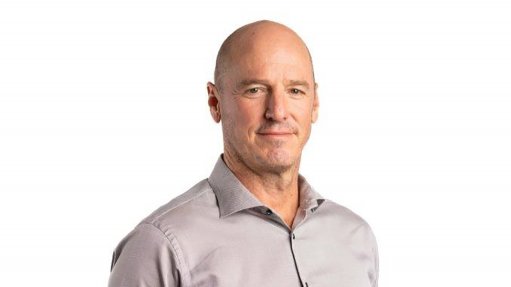Low-carbon product demand presents opportunities for early-movers
Many low-carbon products will likely be in short supply over the next decade, warns a new report from global body the World Economic Forum (WEF) and management consulting company Boston Consulting Group (BCG).
“This decade presents the opportunity to see a massive scale-up of climate solutions and the creation of large markets for low-carbon materials, products and services,” says WEF head of climate change Antonia Gawel.
“Business and government have a critical role to play to provide the capital, technology, policy and legislation to meet our climate goals on time. This year’s WEF Annual Meeting in Davos will convene these leaders to accelerate climate ambition and investment.”
Many low-carbon alternative products, particularly in the industrial sector, still come at a cost premium of 50% or more. However, as these new technologies scale and government intervention continues, declining cost premiums will create opportunities for companies to pioneer green markets.
A June 2022 BCG sustainability consumer survey showed that, while less than 10% of consumers choose sustainable products to save the planet, the number increases about two to four times, to 20% to 43% of consumers, when sustainability is linked to other benefits such as health, safety and quality. This number increases yet another two to four times, to about 80%, when barriers such as convenience, lack of information and cost are addressed.
“Based on these consumer trends, coupled with increasing government action and pressure to act from employees, investors and other stakeholders, companies can build a compelling business case for the development of green options. For early movers, there is a largely untapped and rapidly growing market willing to pay for green products,” the report stated.
Greenhouse-gas emissions must be reduced by 43% by 2030 to limit global warming to the required 1.5 °C above preindustrial levels, analysis by the United Nations Intergovernmental Panel on Climate Change (IPCC) shows, but a recent report from the IPCC shows that emissions are expected to increase by nearly 11%, the WEF and BCG report points out.
According to the WEF and BCG report 'Winning in Green Markets: Scaling Products for a Net-Zero World', as green technologies scale, cost premiums will decline or disappear altogether. The pace of cost parity depends on location and government policies.
Early movers must find a way to offset higher costs and transform the green cost premium into a green revenue premium by translating lower emissions into a business value. Ørsted, Tesla and Beyond Meat are examples of companies that achieved first-mover advantage by creating a compelling green offer before cost parity was achieved, the report highlights.
Despite substantial and increasing demand for green materials, many supply-side players are not responding at the pace needed, creating green scarcity.
In most major value chains, the market share of downstream players with science-based value chain decarbonisation commitments far surpasses the share of upstream players who would need to supply the green materials to achieve these commitments. This market share gap can be more than 20 percentage points.
According to the report, the highest scarcity risk for 2030 is projected to be in green plastics and chemicals, where production capacity will likely not meet consumer demand. However, while green steel is scarce right now, producers have announced plans to bring significant production capabilities online this decade.
By November 2022, 1 957 companies had set certified science-based emissions reductions targets, and a further 2 103 had committed to setting them. A recent survey of 81 members of the WEF’s Alliance of CEO Climate Leaders found that while almost half were already paying a green premium for at least one input, most of them were not increasing base material costs to consumers.
Reasons cited for absorbing higher costs included investment in overall sustainability goals, securing access to inputs critical to capturing or expanding share in a promising new market, and hedging against future climate legislation.
“As upstream companies struggle to shape a de-commoditised market, downstream players still struggle to develop net-zero products that would be compelling to consumers. The report details six actions companies must take to commercialise sustainability, including designing a target portfolio of green offerings for a net-zero world, and shaping value propositions based on these green offerings.”
Companies should also engage with customers on green products, create a green pricing strategy, develop the corresponding market environment, and transform to thrive with key enablers across the business, the WEF and BCG report advises.
“The benefits of climate action are clear, and the costs of inaction pose a threat to all of humanity. Decisive corporate action has become an imperative and an opportunity to not only lead in a growing market but to create and scale the green markets that will transform our economy,” says BCG MD and partner and report co-author Patrick Herhold.
Comments
Press Office
Announcements
What's On
Subscribe to improve your user experience...
Option 1 (equivalent of R125 a month):
Receive a weekly copy of Creamer Media's Engineering News & Mining Weekly magazine
(print copy for those in South Africa and e-magazine for those outside of South Africa)
Receive daily email newsletters
Access to full search results
Access archive of magazine back copies
Access to Projects in Progress
Access to ONE Research Report of your choice in PDF format
Option 2 (equivalent of R375 a month):
All benefits from Option 1
PLUS
Access to Creamer Media's Research Channel Africa for ALL Research Reports, in PDF format, on various industrial and mining sectors
including Electricity; Water; Energy Transition; Hydrogen; Roads, Rail and Ports; Coal; Gold; Platinum; Battery Metals; etc.
Already a subscriber?
Forgotten your password?
Receive weekly copy of Creamer Media's Engineering News & Mining Weekly magazine (print copy for those in South Africa and e-magazine for those outside of South Africa)
➕
Recieve daily email newsletters
➕
Access to full search results
➕
Access archive of magazine back copies
➕
Access to Projects in Progress
➕
Access to ONE Research Report of your choice in PDF format
RESEARCH CHANNEL AFRICA
R4500 (equivalent of R375 a month)
SUBSCRIBEAll benefits from Option 1
➕
Access to Creamer Media's Research Channel Africa for ALL Research Reports on various industrial and mining sectors, in PDF format, including on:
Electricity
➕
Water
➕
Energy Transition
➕
Hydrogen
➕
Roads, Rail and Ports
➕
Coal
➕
Gold
➕
Platinum
➕
Battery Metals
➕
etc.
Receive all benefits from Option 1 or Option 2 delivered to numerous people at your company
➕
Multiple User names and Passwords for simultaneous log-ins
➕
Intranet integration access to all in your organisation

















